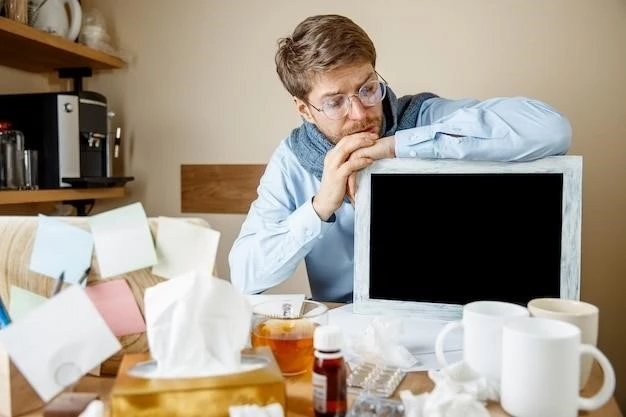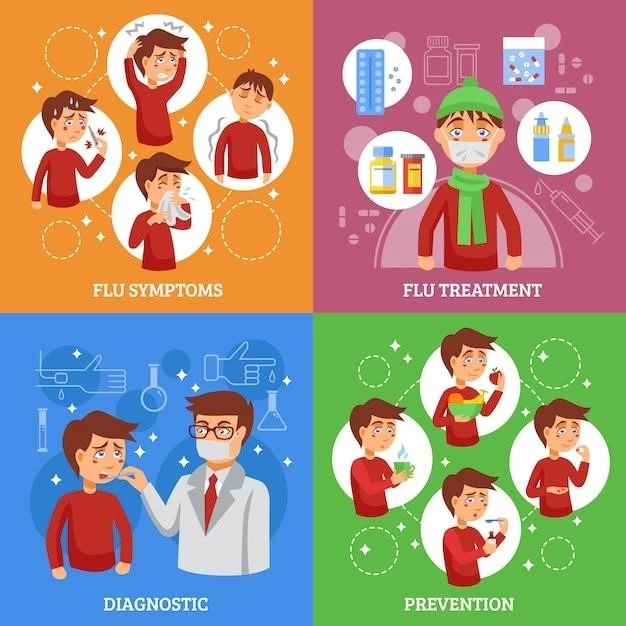Bejel Symptoms and Treatment
Understanding the symptoms of Bejel is crucial for timely treatment. Be on the lookout for signs like skin lesions and bone deformities. Seek medical advice promptly if you suspect Bejel.
Causes of Bejel Infection
Bejel, also known as endemic syphilis, is caused by the bacterium called Treponema pallidum subsp. endemicum. The infection spreads through close personal contact, often during childhood. Poor living conditions and lack of hygiene contribute to the transmission of Bejel. Understanding the causes can help in preventing its spread.
- Close Personal Contact⁚ Bejel commonly spreads through direct contact with mucus from an infected person’s nose or mouth.
- Poor Hygiene⁚ Inadequate sanitation and poor hygiene practices can facilitate the transmission of Bejel within communities.
- Crowded Living Conditions⁚ Overcrowded living spaces increase the risk of infection transmission, especially among children.
- Shared Utensils⁚ Sharing utensils like cups or eating from communal plates can also contribute to the spread of Bejel.
Being aware of these causes and taking preventive measures such as improving hygiene practices, avoiding close contact with infected individuals, and promoting public health initiatives can help in reducing the incidence of Bejel infection.
Preventing Bejel Transmission
Preventing the transmission of Bejel is crucial to control its spread within communities. By following simple yet effective preventive measures, you can reduce the risk of contracting and transmitting the infection. Here are some practical tips to prevent Bejel⁚
- Practice Good Hygiene⁚ Regular handwashing with soap and water helps minimize the spread of bacteria.
- Avoid Sharing Personal Items⁚ Refrain from sharing items like utensils, towels, or toothbrushes that may come into contact with saliva.
- Promote Sanitation⁚ Maintain clean living spaces and encourage proper sanitation practices in communities.
- Education and Awareness⁚ Educate individuals about the risks of Bejel and the importance of preventive measures.
- Medical Treatment⁚ Seek medical advice promptly if you suspect Bejel infection to prevent its transmission to others.
- Use Protection⁚ In high-risk situations, such as close contact with infected individuals, consider using protective measures to prevent transmission.
By incorporating these preventive measures into your daily routine and promoting community-wide awareness, you can play a significant role in preventing the transmission of Bejel and safeguarding public health.
Bejel Diagnosis Methods
Diagnosing Bejel involves a combination of physical examination, medical history assessment, and laboratory tests. If you suspect Bejel or have been in close contact with an infected individual, it is important to consult a healthcare provider for proper diagnosis. Here are common methods used for diagnosing Bejel⁚
- Physical Examination⁚ Healthcare providers look for specific symptoms such as skin lesions, mucous patches, and bone deformities.
- Medical History⁚ Providing information about recent exposure to infected individuals or living in endemic areas can assist in diagnosis.
- Lab Tests⁚ Serological tests, including blood tests, are conducted to detect antibodies against the causative bacterium, Treponema pallidum subsp. endemicum.
- Dark-field Microscopy⁚ A sample from a lesion is examined under a dark-field microscope to identify the presence of the bacteria.
- PCR Testing⁚ Polymerase chain reaction (PCR) tests can be used to detect the genetic material of the bacterium in samples.
- Imaging Studies⁚ In some cases, imaging tests like X-rays may be conducted to assess bone involvement in advanced Bejel cases.
Timely and accurate diagnosis of Bejel is vital for initiating appropriate treatment and preventing complications. If you suspect Bejel or have concerns about possible infection, consult a healthcare professional promptly for evaluation and diagnostic testing;
Bejel Complications to be Aware of
While Bejel is generally a non-fatal disease, if left untreated, it can lead to several complications that may affect various parts of the body. Being aware of these potential complications is important for understanding the severity of the infection and seeking appropriate medical care. Here are some complications associated with Bejel⁚
- Bone Deformities⁚ Untreated Bejel can result in bone deformities, particularly in the long bones like the tibia and fibula.
- Gummas⁚ These are soft, tumor-like growths that may develop on the skin, bones, or other tissues in advanced cases of Bejel.
- Cardiovascular Involvement⁚ Rarely, Bejel can affect the cardiovascular system, leading to conditions like aortitis or aneurysm formation.
- Neurological Complications⁚ In some cases, Bejel can lead to neurological problems such as meningitis or cranial nerve palsies.
- Pregnancy Complications⁚ Pregnant women with untreated Bejel can pass the infection to the fetus, leading to congenital syphilis and its associated complications.
It is essential to seek timely treatment upon diagnosis to prevent these complications. Regular follow-ups with healthcare providers and adherence to the prescribed treatment plan can help manage Bejel effectively and reduce the risk of developing serious complications.
Bejel in Children⁚ What You Need to Know
Bejel can affect children, especially in regions where the infection is endemic. Understanding how Bejel manifests in children and knowing how to manage it is essential for parents, caregivers, and healthcare professionals. Here are key points to consider regarding Bejel in children⁚
- Transmission⁚ Children usually acquire Bejel through close contact with infected individuals, commonly within their households or communities.
- Symptoms⁚ Children with Bejel may exhibit skin lesions, mucous patches, bone deformities, and other typical signs of the infection.
- Diagnosis⁚ Diagnosis of Bejel in children involves similar methods as in adults, including physical examination and laboratory tests.
- Treatment⁚ Prompt treatment of Bejel in children is crucial to prevent complications and long-term impact on their health.
- Prevention⁚ Educating children about proper hygiene practices, avoiding sharing personal items, and seeking medical help when needed can aid in preventing Bejel.
- Monitoring⁚ Regular monitoring by healthcare providers is important to track the progression of Bejel in children and adjust treatment as necessary.
By staying informed about Bejel in children and taking proactive measures to address the infection early on, parents and caregivers can ensure the well-being of their children and contribute to the overall prevention of Bejel within communities.
Traditional Remedies vs. Modern Treatments for Bejel
When it comes to treating Bejel, it is crucial to understand the differences between traditional remedies and modern medical treatments. While traditional remedies may have cultural significance, modern treatments are backed by scientific research and clinical trials. Here is a comparison between traditional remedies and modern treatments for Bejel⁚
- Traditional Remedies⁚
- Herbal Solutions⁚ Some cultures use herbal concoctions or extracts to treat Bejel symptoms.
- Prayer and Rituals⁚ Traditional practices involving prayer and rituals are believed to have healing effects.
- Application of Natural Substances⁚ Topical application of substances like honey or clay may be used in traditional settings.
- Modern Treatments⁚
- Antibiotics⁚ The primary treatment for Bejel involves antibiotics like penicillin or doxycycline to eliminate the bacterial infection.
- Follow-up Care⁚ Regular follow-ups with healthcare providers ensure the effectiveness of treatment and monitor for any complications.
- Education and Prevention⁚ Modern treatments focus on educating patients about preventive measures and the importance of completing the prescribed course of antibiotics.
While traditional remedies may offer comfort and cultural significance, modern medical treatments provide evidence-based care that targets the root cause of Bejel. It is essential to consult healthcare professionals for an accurate diagnosis and appropriate treatment based on scientific advancements.
Public Health Measures for Controlling Bejel Spread
Controlling the spread of Bejel requires coordinated public health efforts aimed at raising awareness, implementing preventive strategies, and ensuring access to healthcare services. Public health measures play a crucial role in reducing the incidence of Bejel within communities. Here are key strategies for controlling the spread of Bejel⁚
- Educational Campaigns⁚ Public health authorities can conduct educational campaigns to inform the population about Bejel, its transmission, symptoms, and prevention.
- Improved Sanitation⁚ Enhancing sanitation practices in communities, including access to clean water and proper waste disposal, can help reduce the spread of Bejel.
- Health Screenings⁚ Organizing health screenings in high-risk areas can facilitate early diagnosis and treatment of Bejel cases.
- Community Engagement⁚ Involving communities in awareness programs and preventive initiatives fosters active participation in controlling Bejel spread.
- Healthcare Access⁚ Ensuring equitable access to healthcare services, including diagnostic tests and antibiotics, is essential for managing Bejel infections.
- Surveillance and Reporting⁚ Establishing surveillance systems to monitor Bejel cases and trends enables prompt intervention and targeted public health actions.
By implementing comprehensive public health measures that focus on education, sanitation, community engagement, and healthcare access, it is possible to mitigate the impact of Bejel and work towards its control and prevention on a broader scale.
Conclusion
In conclusion, understanding the symptoms, causes, and treatment options for Bejel is essential for effectively managing the infection and preventing its spread. By recognizing the importance of early diagnosis, prompt treatment, and preventive measures, individuals can play a significant role in controlling Bejel within communities. It is vital to seek medical attention if you suspect Bejel or have been in contact with an infected individual. Remember to adhere to prescribed treatment plans, practice good hygiene, and support public health initiatives aimed at preventing and managing Bejel infections. By working together to raise awareness, improve sanitation, and ensure access to healthcare services, we can make significant strides towards reducing the burden of Bejel and promoting overall community health. Stay informed, stay proactive, and prioritize your health and the well-being of those around you.

